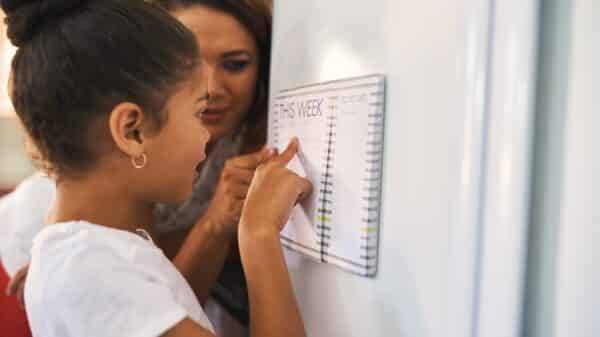Mississippi has recently declared a public health emergency, and the gravity of this declaration looms heavily over the state. A heartbreaking statistic emphasizes the urgency of the situation: in 2024, approximately 9.7 infants died for every 1,000 live births in Mississippi—nearly double the national average of 5.6 deaths per 1,000 live births, as reported by the Mississippi Department of Health. This alarming trend not only paints a concerning picture of infant health in Mississippi but also serves as a stark warning for families across the nation.
Since 2014, over 3,500 infants in Mississippi have tragically passed away before they even reached their first birthday. Each statistic represents not just a number, but a tiny life lost, a family plunged into grief, and a community left to grapple with the absence of these cherished children. As we consider these sobering figures, it’s worth noting that the U.S. as a whole struggles with one of the highest infant mortality rates among wealthy nations. Unfortunately, families of color bear a disproportionately heavy burden, amplifying the call for immediate action.
Disparities That Cannot Be Ignored
Diving deeper into the numbers reveals staggering racial disparities contributing to Mississippi’s high infant mortality rate. Black infants in Mississippi are more than twice as likely to die before their first birthday compared to their White counterparts, according to data from the Mississippi Department of Health. This inequity isn’t confined to the South; even in cities like Boston, known for its exceptional healthcare facilities, Black infants die at more than twice the rate of the citywide average—and three times the rate of their White peers.
The causes of these distressing outcomes extend beyond individual health concerns. Dr. Stephen Patrick, a neonatologist and professor at Emory University, highlights that many challenges facing newborns can be traced back to systemic issues confronting mothers long before delivery. “Poverty, lack of access to healthcare, substandard housing, and transportation hurdles all contribute,” he stresses. Dr. Rebekah Gee, a former Louisiana health secretary, resonates with this sentiment: “Healthy babies come from healthy moms. If women lack access to continuous healthcare throughout their pregnancy, it’s no surprise higher rates of infant mortality occur.”
These expert perspectives highlight a tough reality: the high rates of infant mortality are woven into the fabric of systemic inequities. Solutions must reach beyond hospital walls and prioritize the overall health and wellbeing of mothers and families.
Why Mississippi Declared a Public Health Emergency
Taking the unusual step of declaring a public health emergency for infant mortality reflects the dire need for urgent change. Mississippi officials recognize that swift coordination is essential among hospitals, state agencies, and community organizations to tackle this pressing crisis. The emergency plan aims to enhance prenatal services in areas lacking obstetric providers, establish a comprehensive obstetric care system for emergency transfers, and fortify home-visiting and community health worker programs as highlighted by the Mississippi Department of Health.
Many experts affirm that this proactive approach is necessary. Dr. Michael Warren, the Chief Medical and Health Officer at March of Dimes, stated, “This is a novel and necessary step. It elevates infant mortality to the level of urgent crisis response, which it truly is.” Meanwhile, other leaders underscore that improving maternal health is crucial: “Enhancing maternal health is the most effective way to reduce infant mortality,” remarked Dr. Dan Edney, Mississippi’s State Health Officer.
Collectively, these responses signal an important shift in perspective: addressing infant mortality requires treating not just the sick newborns, but also investing in the health and wellbeing of mothers before and after birth.
The Role of Medicaid and Federal Programs
While Mississippi’s emergency plan marks progress, experts warn that its success is contingent upon the continued support of national programs. For instance, the Pregnancy Risk Assessment Monitoring System (PRAMS)—a pivotal program run by the CDC for nearly 40 years—faces elimination. Similarly, the Safe to Sleep® campaign, which has educated countless parents on minimizing sleep-related dangers, is also at risk of budget cuts. The potential loss of these programs could significantly hinder Mississippi’s ability to address these pressing health concerns.
In a state where nearly six out of ten births are financed by Medicaid—far exceeding the national average—this program often serves as a lifeline for many families. Although postpartum coverage has recently been extended to a year, the lack of full Medicaid expansion means that numerous women remain uninsured before and between pregnancies, thereby impairing their ability to access essential healthcare services.
In summary, programs like PRAMS, Safe to Sleep®, and Medicaid are vital for equipping families with the necessary resources and information to increase the chances that their children will celebrate their first birthdays.
What Parents Can Do
While the broader solutions require systemic changes, there are actionable steps families can take to help protect their little ones:
Follow Safe Sleep Practices
Ensuring that babies sleep safely can greatly reduce the risk of sleep-related deaths. Always place infants on their backs to sleep, utilize a firm mattress, and keep the crib free from pillows, blankets, and toys. Resources from the CDC’s Safe to Sleep® campaign can offer further guidance.
Prioritize Prenatal and Postpartum Care
Regular checkups are essential for monitoring both maternal and infant health. They help identify potential complications early on and connect families with local resources that can aid them throughout their journey.
As we navigate this unsettling reality, it’s crucial to remember that change is possible. By advocating for equitable healthcare, understanding the systemic challenges at play, and taking proactive steps as families, we can work toward a brighter future for all infants and their families.Many communities understand that the journey into parenthood can be overwhelming, especially during that crucial first year. That’s why many areas provide vital resources such as nurses or health workers who can visit your home. Imagine having someone knowledgeable come to your door, ready to answer your questions and give you personalized support during a time filled with both joy and uncertainty. It’s not just about tackling the big concerns—having that kind of reassurance can make a world of difference.
But here’s something crucial to remember: you don’t have to bear this burden alone. Even the most dedicated and loving parents can find themselves struggling in the face of systemic challenges like limited healthcare access or unstable housing situations. Experts are clear on this—families thrive when they have strong support systems around them. That’s why it’s so important to protect essential programs such as Medicaid and the Pregnancy Risk Assessment Monitoring System (PRAMS). These initiatives are foundational, providing crucial resources that help ensure families have access to the healthcare and support they need.
Now, looking at the bigger picture, Mississippi’s recent health crisis serves as a stark reminder for families everywhere. This isn’t just a local issue; it’s a call to action for all of us. To create lasting change, we need a unified effort that spans from local advocacy to federal policy reform. It’s about ensuring that initiatives like PRAMS and the Safe to Sleep® campaign—programs designed to prevent infant deaths—continue to receive the support they need.
Additionally, focusing on expanding Medicaid coverage during the critical periods before, during, and after pregnancy can significantly improve the health of mothers and their babies. A healthy mom is more likely to have a healthy baby; it’s a simple yet profound truth. As a parent, you have the power to stay engaged, prioritize your family’s care, and advocate for maternal and infant health. This could mean reaching out to local representatives, joining forces with maternal health organizations, or even sharing valuable information within your community.
Dr. Dan Edney, Mississippi’s State Health Officer, put it perfectly when he said, “It will take all of us working together to give every child the chance to live, thrive, and celebrate their first birthday.” This quote is a poignant reminder that it truly takes a village. Together, we can make a significant impact on the future of our children and ensure that every family has the chance to flourish.
In these challenging times, stay informed and connected. Whether by tapping into local resources, leveraging online tools, or simply engaging in conversations about these vital issues, your voice matters. Let’s work together to foster a landscape where every child has the opportunity to thrive from the very start.
Image Source: Unsplash



































